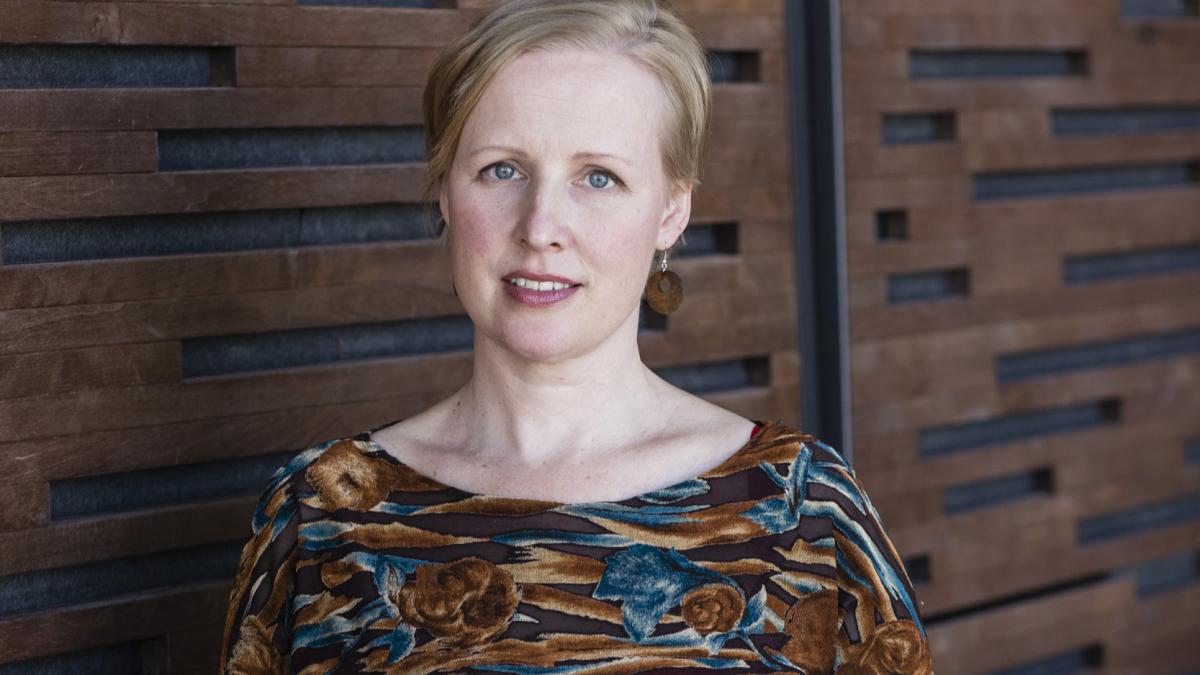Doctoral dissertation: Improvisation pedagogy can support the social skills of all kinds of learners and their ability to deal with feelings of insecurity

High-quality, holistic interaction and improvisation support learning, equality and the quality of life on many levels. Such findings are presented by Eeva Siljamäki, whose doctoral dissertation will be examined at Uniarts Helsinki’s Sibelius Academy on 4 June 2021.
In her doctoral research, Eeva Siljamäki has explored the possibilities of improvisation for music education. Her aim has been to increase understanding of how playful collaborative improvisation can enhance not only musical learning but also the quality of life.
Siljamäki noticed that an improvisational, creative and social mindset is a skill that one can learn and that may support learning, wellbeing and cooperation. In her dissertation, she advocates that music education holds the potential of supporting learners’ social skills and capacity for facing uncertainties. This could be done by developing methods for improvisation and by recognising the individual conditions that either support or hinder the development and learning of each participant.
“With the voice created within one’s own body and by focusing on co-creating we can support the acceptance of diversity and consideration of different people,” Siljamäki notes.
Experience of safety and quality of interaction are important for cooperation and learning together
Siljamäki studied what kinds of meanings participants give to choir activities, which are steered by the quality of social interaction as well as musical quality. She examined the practice of improvisation in two choirs, which both had adult members and a focus on supporting good interaction and a good atmosphere.
One of the choirs was an arts intervention for university students with social anxiety. The intervention was carried out by Siljamäki in 2013–2014 in cooperation with a psychologist and a physiotherapist representing the Finnish Student Health Service. The choir project lasted for one academic year, and it offered university students the chance to learn how to manage their social anxiety better. At the end of the project, the choir members felt encouraged enough to perform with three other choirs at the Helsinki Music Centre. As for the other choir that Siljamäki studied in her doctoral research, the focus was on practisingand performing completely improvised music. Siljamäki participated in the choir’s activities as an equal member of the group.
Both choirs applied practices and approaches used in improvisational theatre in their way of fostering a good atmosphere and maintaining a fruitful environment for collaboration and creative processes. When examining the participants’ experiences, Siljamäki noticed that the feeling of safety and the quality of interaction are important for both the success of the collaboration and for learning together. According to Siljamäki, an improvisational way of thinking and holistic expression that welcomes all kinds of sounds are both elements that could be increased in music teaching.
More infromation
Eeva Siljamäki
eeva.siljamaki@uniarts.fi
Online event: Public defence of the doctoral dissertation of Eeva Siljamäki 4.6.2021 at 10 a.m.
Title of the dissertation: Plural possibilities of improvisation in music education: An ecological perspective on choral improvisation and wellbeing
Opponent: Prof. Raymond MacDonald (Edinburgh College of Art, The University of Edinburgh, UK)
Examiners of the dissertation: Prof. Raymond MacDonald (Edinburgh College of Art, The University of Edinburgh, UK) & Asst. Prof. Maud Hickey (Center for the Study of Education and the Musical Experience, Northwestern University, USA)
Chair: prof. Heidi Westerlund (Sibelius Academy, University of the Arts Helsinki)